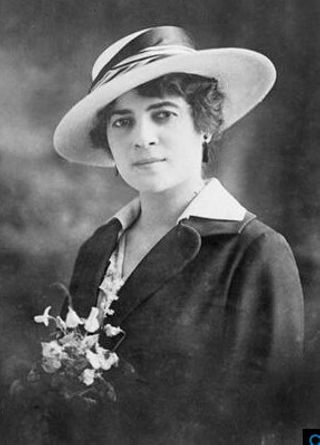From collection Candidates

Clarice Margoles Baright was was a candidate for delegate at large for the Democratic National Convention from New York in 1920. She was a New York City lawyer prominent in public life. She was born in Austria and immigrated to the U.S. with her family when she was child. Baright attended New York University, graduating in 1905. She reputedly became the first woman to be admitted to the American Bar Association as well as the New York State Bar Association. Additionally, Baright was a member of several legal and womenís associations, including the Women Lawyer's Association, New York County Lawyer's Association, and Women Democrats of America. Her commitment to improving conditions for low-income families in the NYC East Side led her to a career of advocacy and pro-bono work for the poor. In the summer of 1915 she applied to NYC Mayor John Mitchel for an appointment at the Court of Special Sessions, with the goal of being placed as a magistrate in the Juvenile Court. Baright was confident in her abilities; she steadfastly believed that, as a woman, she was better suited for Family Court than a man. In an article in the New Castle Herald from June 26, she explained that her experience with bringing up two young girls gave her an "intimate association" with the nature of children. Baright also described her close relationships with "the boys and girls of this city who became the delinquents that appear before our juvenile court". She believed her unique familiarity with young people and the conditions they lived in would allow her to reform the lives of juvenile offenders. Unfortunately, the mayor rejected her candidacy and appointed five male court justices that summer. In 1925, however, Baright was granted a temporary appointment to the Family Court when one of the magistrates fell ill. She became the second woman to be sworn in as a magistrate in New York City, the first being Jean H. Norris. Baright was a supporter of the women's suffrage movement, and in 1920 was a candidate for delegate at large for the Democratic National Convention. At the time, suffragists and women Democrats had secured a spot for a female delegate. A dilemma ensued when several women questioned the candidacy of Elisabeth Marbury, a prominent theatrical and literary agent, the cause being that she had been nominated by Homer S. Cummings, Chairman of the Executive Committee of the Democratic National Committee. The women felt that Marbury was a "man-chosen" candidate, preferring instead to select their own contenders. In order to avoid a contest, they also proposed sending two female delegates to the Convention, May Mills being the favored candidate for the second spot. Nevertheless, several groups, notable amongst them the newly-formed Women Democrats of America, continued to resist Marbury's candidacy. On March 1st, 1920, Clarice Baright was chosen as the opposition candidate. Five days later, however, Baright stepped down, claiming she had been informed that Marbury had decided to withdraw, leaving no reason for her own campaign. On March 8th, Marbury dispelled the rumors of her withdrawal at a dinner offered by the Democratic Womenís National Campaign Committee of One Thousand. Marbury and Mills eventually became the two elected delegates at large. Baright continued to lead a career of civic advocacy. For some time, she represented the Metropolitan Housewives League and several other groups fighting for improvements to the subway system. She remained active in Democratic politics and, though she never succeeded in securing a permanent appointment in government, she received the support and admiration of many. In 1931, she was awarded a position in the Membership Committee of the New York County Lawyerís Association. Barightís legal career continued to flourish until her retirement in 1958, three years before her death.



